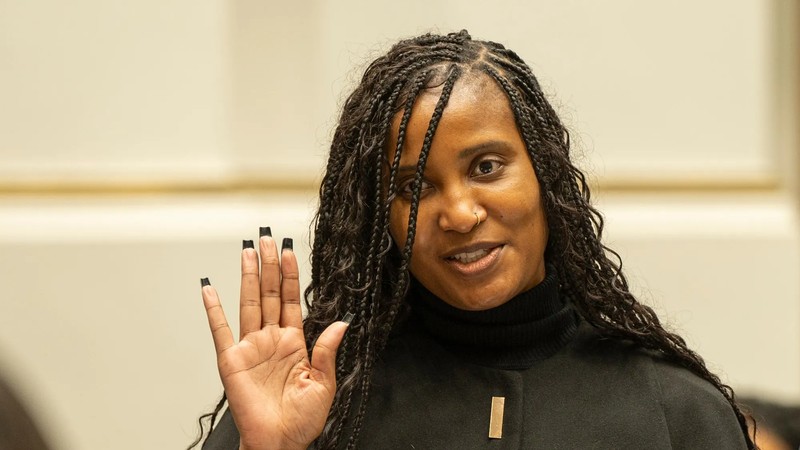
Dudu Zuma-Sambudla is a name that resonates with many South Africans and political observers around the world. As the daughter of former South African President Jacob Zuma, Dudu has been a prominent figure in the country’s socio-political landscape. This article delves into her life, influence, controversies, and the broader implications of her actions.
Early Life and Background
Born Duduzile Zuma on May 20, 1982, Dudu Zuma-Sambudla grew up in a politically charged environment. Her father, Jacob Zuma, was deeply involved in the African National Congress (ANC) and played a significant role in the fight against apartheid. This upbringing exposed Dudu to the complexities of South African politics from a young age.
Dudu attended prestigious schools in South Africa and later pursued higher education abroad, obtaining a degree in International Business from the University of Pretoria. Her educational background laid a strong foundation for her later endeavors in both business and politics.
Rise to Prominence
Dudu Zuma-Sambudla first came into the public eye through her association with her father’s political career. Jacob Zuma’s presidency (2009-2018) was marked by significant achievements and considerable controversies, and Dudu often found herself in the spotlight, either supporting her father or defending him against numerous allegations.
In addition to her political connections, Dudu has made a name for herself in the business world. She has held various positions in different companies, leveraging her education and connections to build a substantial business portfolio. Her involvement in sectors such as media, mining, and telecommunications has been noteworthy.
Political Influence and Activities
Dudu Zuma-Sambudla has been vocal about her political views, frequently using social media platforms to express her opinions. Her Twitter account, in particular, has been a conduit for her to engage with the public on various issues, from government policies to social justice.
Her staunch support for her father has often put her at odds with critics of Jacob Zuma’s presidency. Dudu has been known to defend her father vehemently, dismissing allegations of corruption and state capture as politically motivated attacks. This unwavering loyalty has garnered both admiration and criticism from different quarters.
Controversies and Criticisms
Dudu Zuma-Sambudla’s life has not been without controversy. Her outspoken nature and association with Jacob Zuma have made her a polarizing figure. Some of the key controversies include:
1. Social Media Outbursts
Dudu’s social media activity has often sparked controversy. She has been criticized for her incendiary remarks and for spreading misinformation. Her posts sometimes appear to support conspiracy theories, which has drawn ire from the public and political analysts alike.
2. Business Dealings
Her business dealings have also come under scrutiny. Critics argue that her success in business is largely due to her political connections rather than her capabilities. Allegations of nepotism and preferential treatment have frequently been leveled against her.
3. Allegations of Involvement in State Capture
While Dudu herself has not been formally charged, her family’s alleged involvement in state capture during Jacob Zuma’s presidency has cast a long shadow over her. The state capture allegations, involving billions of rand in corrupt dealings, have been a significant blemish on her public image.
Public Perception and Media Representation
Public perception of Dudu Zuma-Sambudla is deeply divided. Her supporters view her as a resilient and loyal figure who stands by her family and her principles. They admire her for her courage to speak out and her contributions to business and society.
On the other hand, her detractors see her as a product of political privilege, using her father’s influence to advance her interests. The media has often portrayed her in a negative light, focusing on her controversies and the shadow of corruption allegations that hang over her.
Personal Life and Philanthropy
Despite the controversies, Dudu Zuma-Sambudla has also been involved in various philanthropic activities. She has supported numerous charitable causes, particularly those aimed at empowering women and youth in South Africa. Her involvement in community development projects reflects a commitment to giving back to society.
Dudu is married to Lonwabo Sambudla, a businessman, and the couple has children. Her family life, however, remains relatively private compared to her public and business persona.
Broader Implications and Legacy
Dudu Zuma-Sambudla’s life and career offer a window into the complex interplay of politics, business, and social dynamics in South Africa. Her story is emblematic of the challenges and opportunities that come with being part of a politically influential family in a country grappling with its past and striving for a better future.
Her influence in South African politics and business is undeniable, but it also raises questions about the role of political dynasties in a democratic society. The controversies surrounding her underscore the need for greater transparency and accountability in both political and business arenas.
Future Prospects
Looking ahead, Dudu Zuma-Sambudla’s future remains uncertain. With Jacob Zuma’s political influence waning, it will be interesting to see how Dudu navigates her career and public life. Will she continue to be a vocal political figure, or will she focus more on her business and philanthropic efforts?
One thing is clear: Dudu Zuma-Sambudla will continue to be a significant figure in South African society. Her actions and decisions will undoubtedly shape her legacy and influence the country’s socio-political landscape for years to come.
Dudu Zuma-Sambudla is a multifaceted individual whose life and career reflect the complexities of South African politics and business. Her rise to prominence, marked by both achievements and controversies, offers valuable insights into the challenges of navigating public life in a politically charged environment. As she continues to evolve, her impact on South Africa’s future will be closely watched by supporters and critics alike.
In understanding Dudu Zuma-Sambudla, one gains a deeper appreciation of the intricate tapestry of South African society, where personal ambition, political influence, and public perception intersect in fascinating ways.
